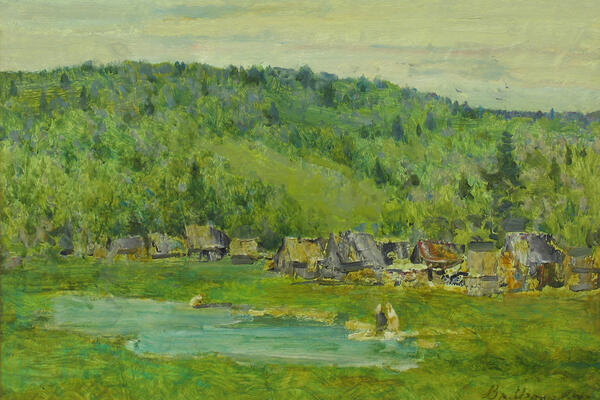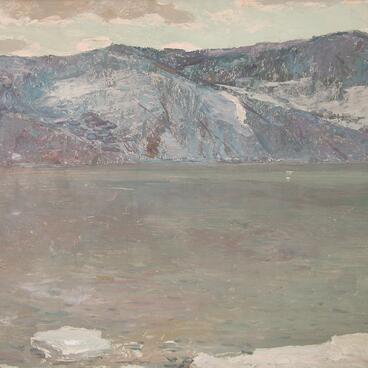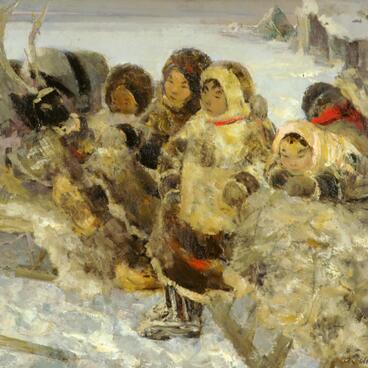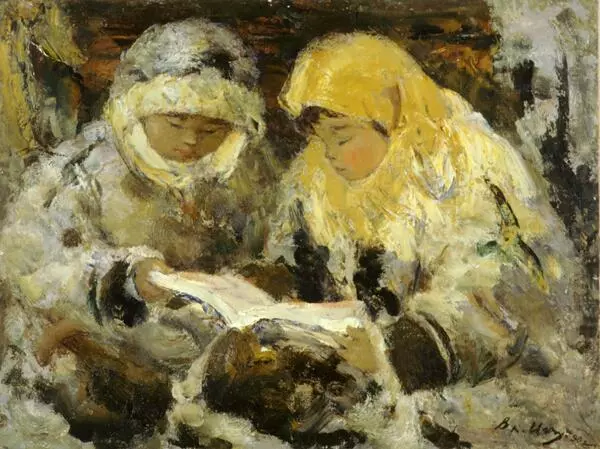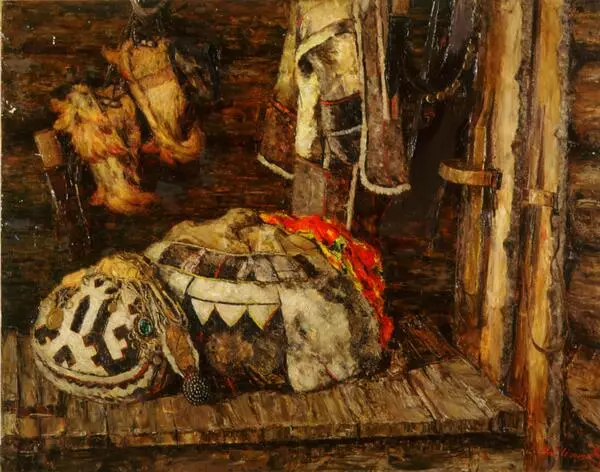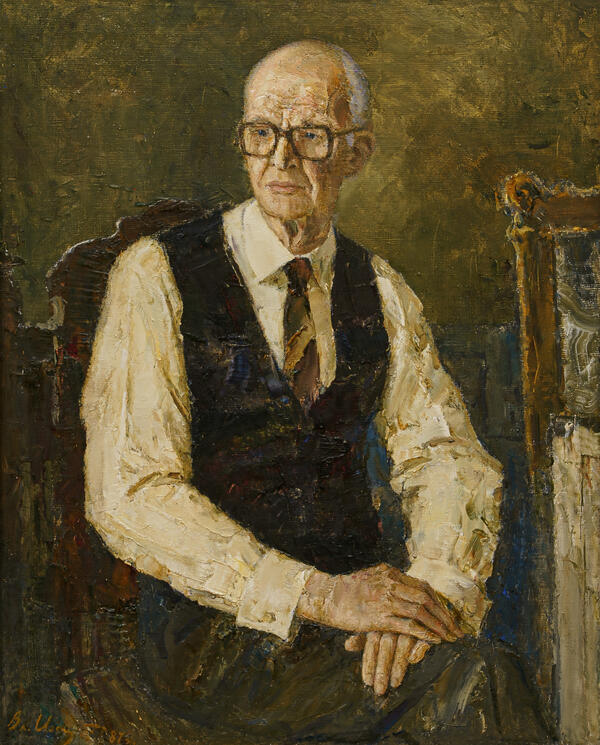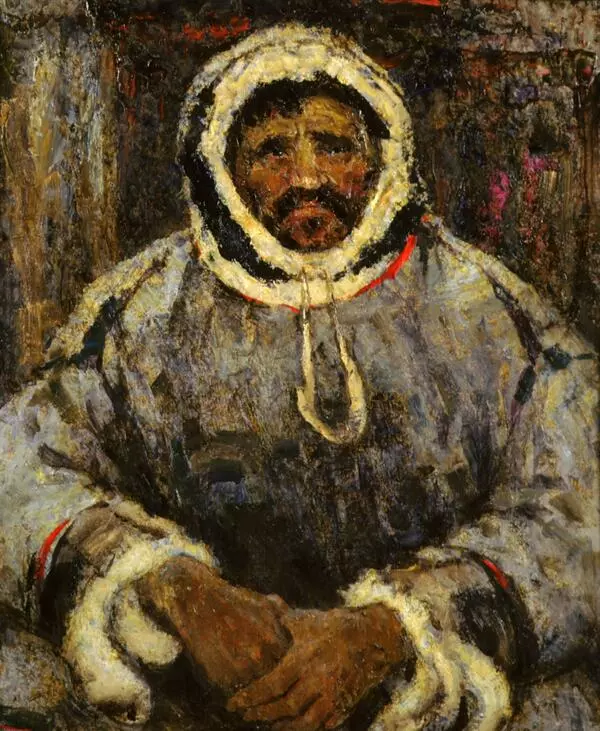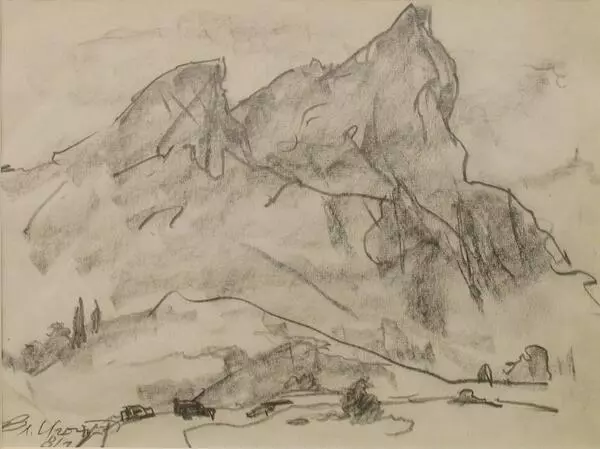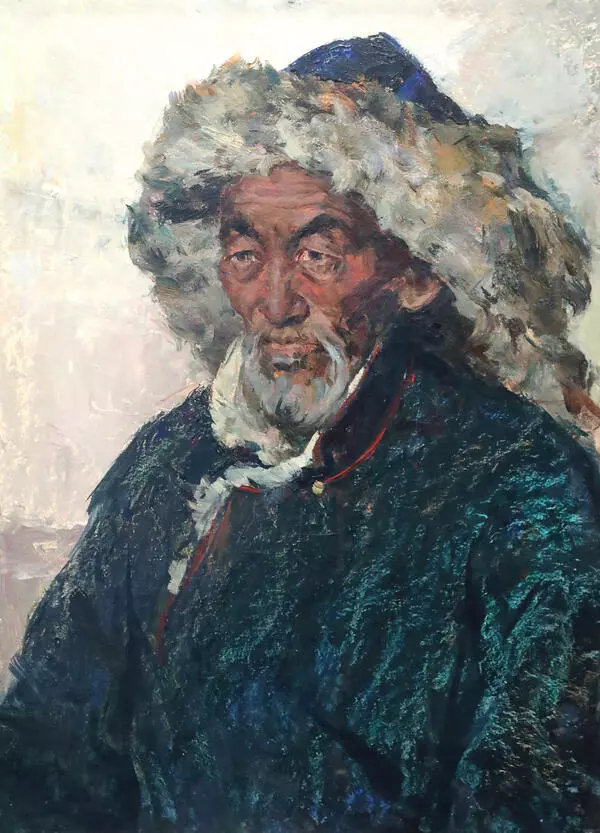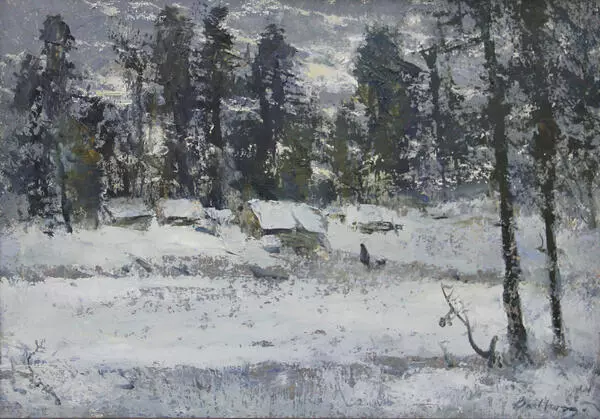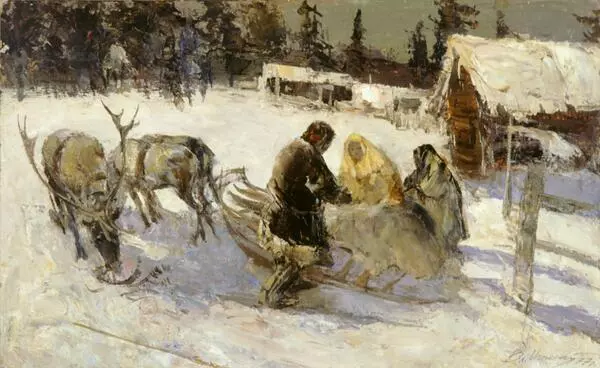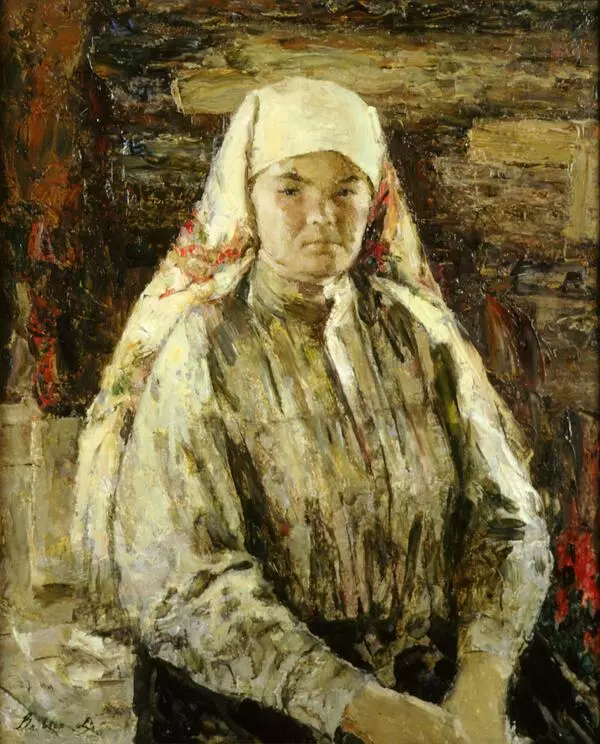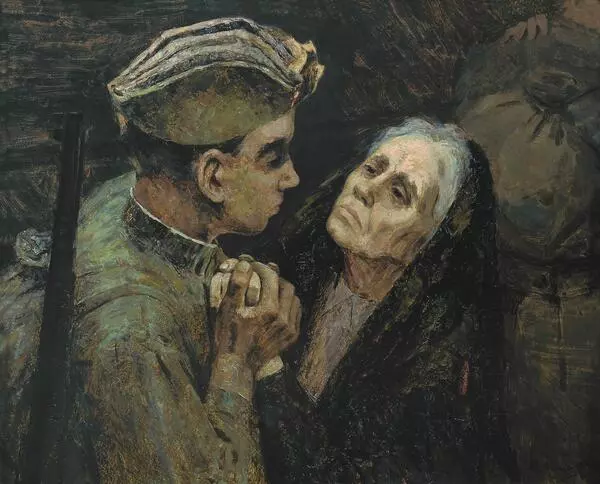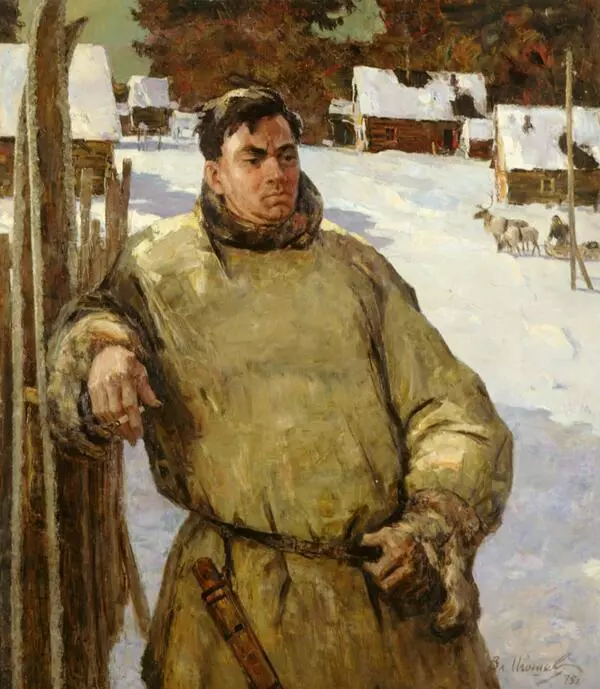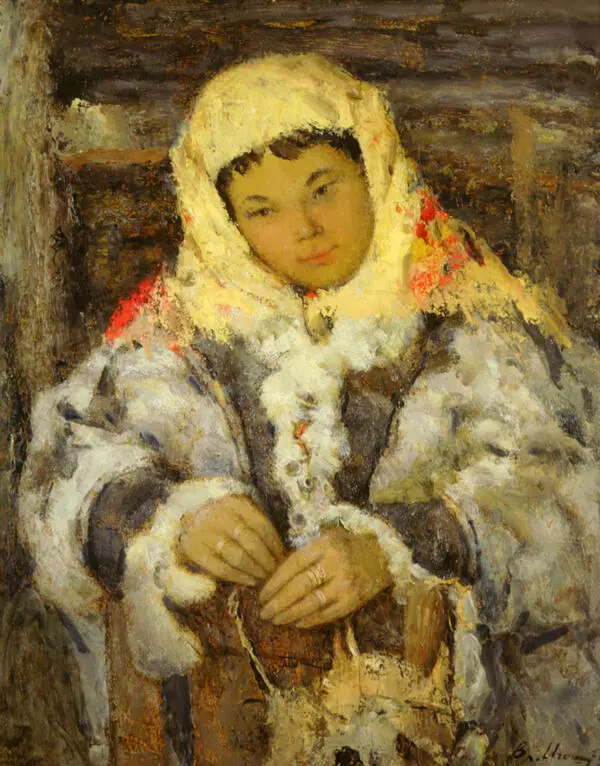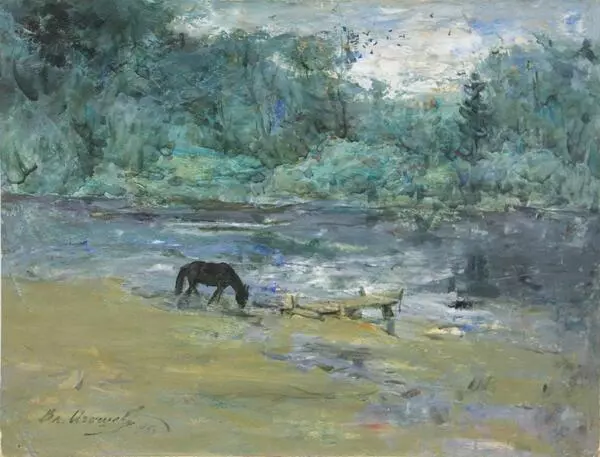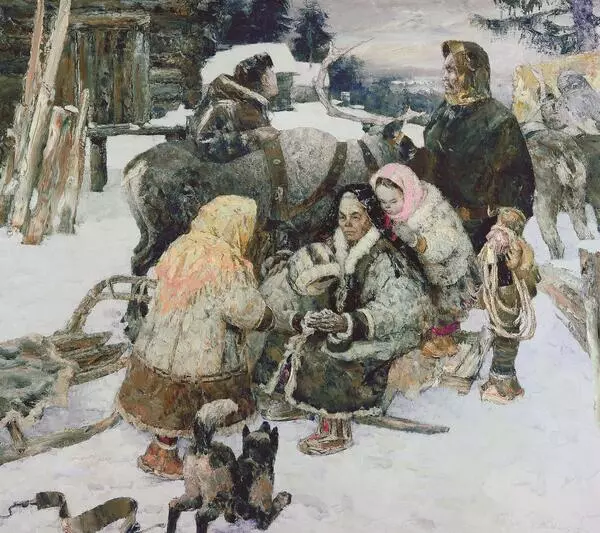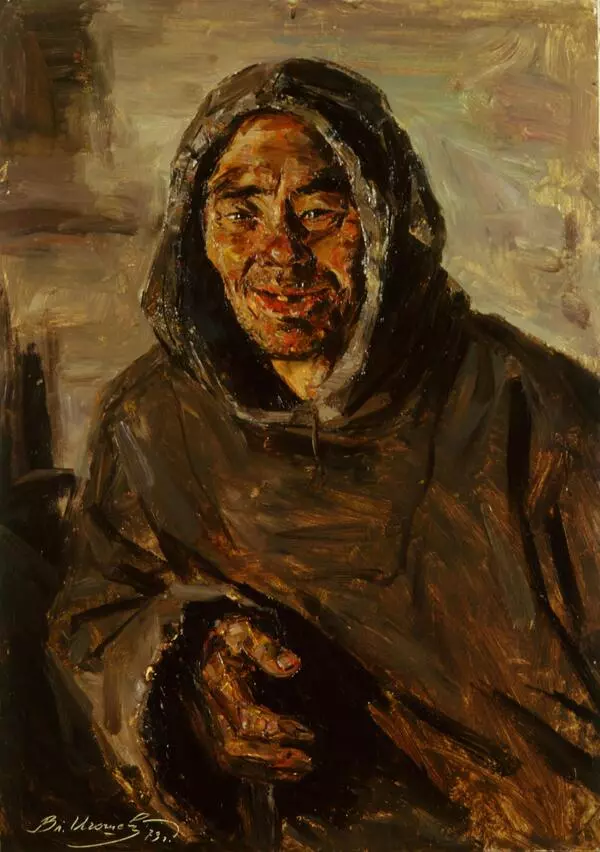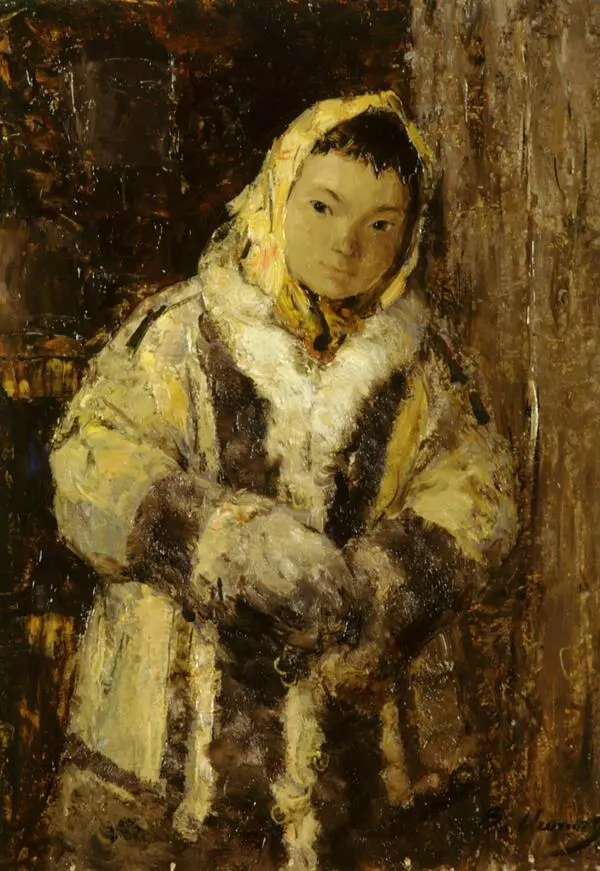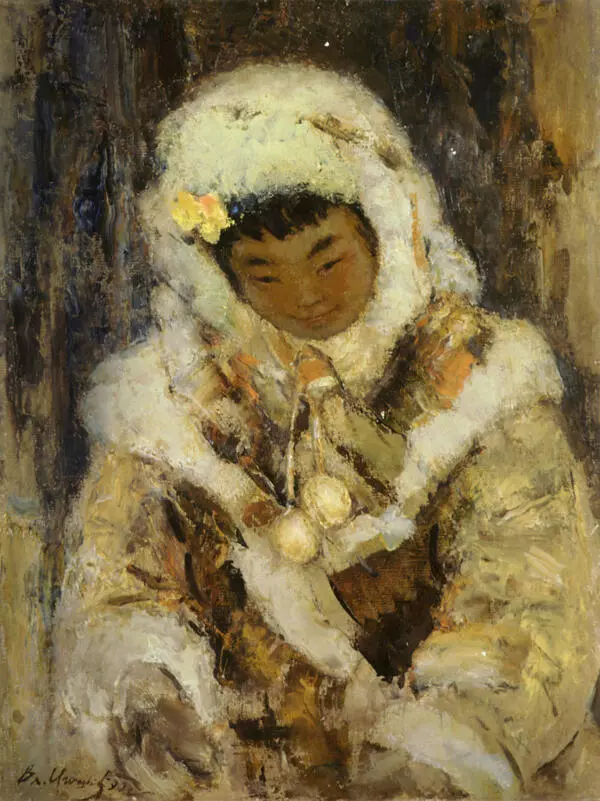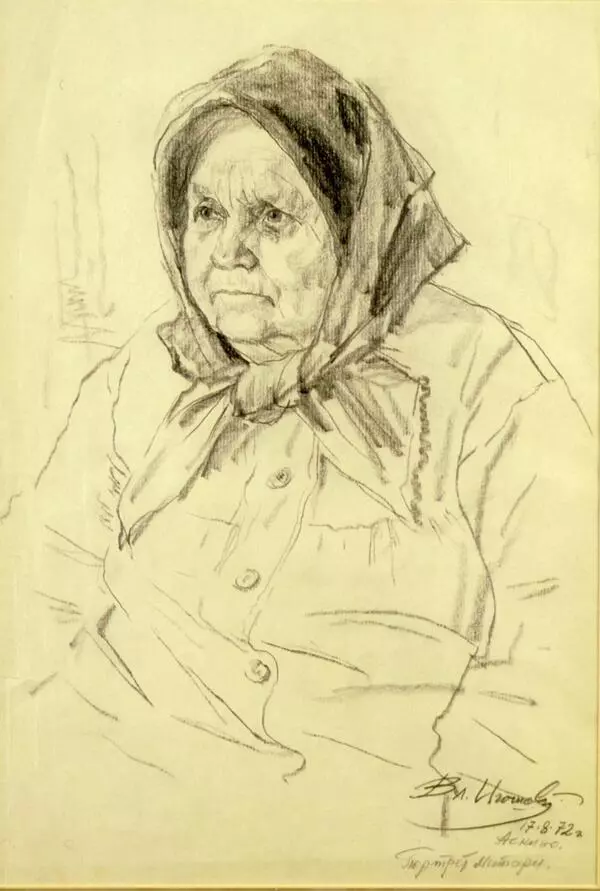In Vladimir Igoshev’s village landscapes the romantic mood is combined with the socialist realism. The latter requires the optimistic approach and elements of impressionism, a very light and changeable style. The artist’s village landscapes are notable for their expressiveness. They highlight the joy of living and the beauty of nature. In his memoirs the artist wrote: ‘Who doesn’t want to see and know more? Who doesn’t like the long journeys and new impressions? Who’s not fascinated by the view of a new land or by a new unknown person? Of course, it’s important to everyone, but for a painter it’s essential. I’ve managed to visit many places in the Soviet Union and many foreign countries. Each journey leaves unforgettable memories and impressions both in my heart and in my memory. Once I recollect some of my trips, the exciting images of the people I met, the ones who always follow me as unforgettable friends and fellow travelers, appear in my mind.’
The depicted village Muranovo is situated in Pushkino, in Moscow Oblast, not far from the Yaroslavsky suburban railway line. The literature memorial Fyodor Tyutchev state museum, based on the family estate of the poet’s descendants, is situated there. From 1816 the estate belonged to the Engelhardt, Baratynsky, Putyaty, and Tyutchev families. Its main building was constructed in 1842 by Eugene Baratynsky, who was Anastasia Engelhardt’s husband. Muranovo was his wife’s marriage portion. After the suppression of the Decembrist revolt Baratynsky believed the poet wasn’t supposed to be associated with the power and the government policy. According to his letters, written from the late 1830s till the early 1840s, he gave an impression of a careful father and forehanded landlord. He didn’t only construct a house in Muranovo, but also built a sawmill, rebuilt a mill, planted a new forest.
From the 1870’s the family of Ivan Fyodorovich, Fyodor Tyutchev’s son, lived in Muranovo. The descendants preserved the poet’s manuscripts, books and personal belongings. The memorial estate was opened in Muranovo in 1920, its foundation was supported by Vladimir Lenin. After the revolution Muranovo was the first literature memorial museum in Russia (even the house-museum of Leo Tolstoy in Yasnaya Polyana was founded in the following year).
The depicted village Muranovo is situated in Pushkino, in Moscow Oblast, not far from the Yaroslavsky suburban railway line. The literature memorial Fyodor Tyutchev state museum, based on the family estate of the poet’s descendants, is situated there. From 1816 the estate belonged to the Engelhardt, Baratynsky, Putyaty, and Tyutchev families. Its main building was constructed in 1842 by Eugene Baratynsky, who was Anastasia Engelhardt’s husband. Muranovo was his wife’s marriage portion. After the suppression of the Decembrist revolt Baratynsky believed the poet wasn’t supposed to be associated with the power and the government policy. According to his letters, written from the late 1830s till the early 1840s, he gave an impression of a careful father and forehanded landlord. He didn’t only construct a house in Muranovo, but also built a sawmill, rebuilt a mill, planted a new forest.
From the 1870’s the family of Ivan Fyodorovich, Fyodor Tyutchev’s son, lived in Muranovo. The descendants preserved the poet’s manuscripts, books and personal belongings. The memorial estate was opened in Muranovo in 1920, its foundation was supported by Vladimir Lenin. After the revolution Muranovo was the first literature memorial museum in Russia (even the house-museum of Leo Tolstoy in Yasnaya Polyana was founded in the following year).

